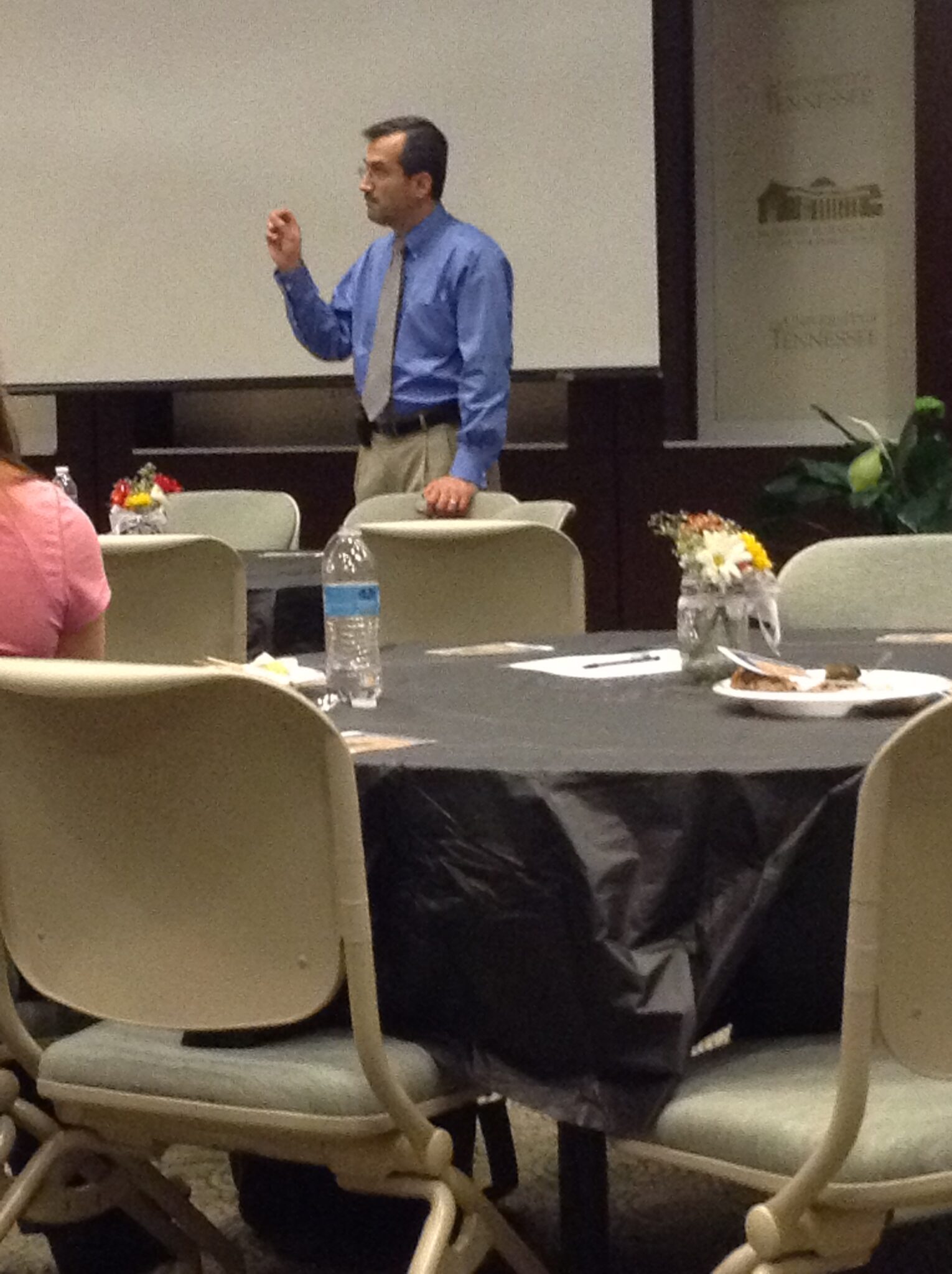Doctor speaks about conflict, humanitarian crisis in Syria
On Wednesday, April 9, MESA hosted the event, “Syria: The Forgotten Revolution,” where guest speaker Dr. Jaber Hassan spoke about what he has seen in his visits over the past three years. Growing up in Syria, Dr. Hassan compared the Syria he knew then, and the Syria he can’t believe now, impounding the importance of the humanitarian crisis in Syria. Daniel Sakaan–UT junior and MESA officer–hopes that by spreading the word of this increasing humanitarian crisis, it may someday soon come to an end.
The Middle Eastern Student Association (MESA) hosted a talk, “Syria: the Forgotten Revolution,” discussing the Syrian humanitarian issues occurring over the past three years in this country on Wednesday at the Howard Baker Jr. Center.


“Sadly, this revolution continues today, though we may no longer see much of it on the evening news,” said Daniel Sakaan, a University of Tennessee Junior and MESA officer. “That does not mean that we should turn our backs on the Syrian people.”
Dr. Jaber Hassan, a Syrian-American pulmonologist and member of the Syrian American Medical Society (SAMS) spoke at the discussion. He talked about different topics within the humanitarian crisis, including the Barrel Bombs Campaign and the Al-Zaatari Refugee Camps.
Between January 28 and February 14, there were 843 deaths in the cities of Aleppo and Citadel due to barrel bombs, and 99 percent were civilians. In a 17-day span, an average of 50 people per day died, said Dr. Hassan.
Most sources estimate that since the protest began three years ago, the casualties fall between 104,000 and 150,000 people, and around nine million people have been relocated from their homes either inside or outside the country, said Sakaan.
To elaborate on the severity of the crisis, Dr. Hassan shared a story about how he used two Pepsi bottles and taped around an 11-year-old girl’s entire face because he didn’t have a neck brace. Dr. Hassan shared another story, when SAMS purchased an ambulance for their hospital. He received word six months later that the ambulance had been bombed.
He added that the UN has declared this as the worst humanitarian crisis since World War II.
MESA urged everyone to use social media to spread the word of the crisis.
“In order to belong to humanity, we should have a sense of responsibility to other humans,” said UT sophomore and MESA co-president, Yasin Kanakriena. “This is an issue, and the people’s voices need to be heard.”
Edited by Maggie Jones

